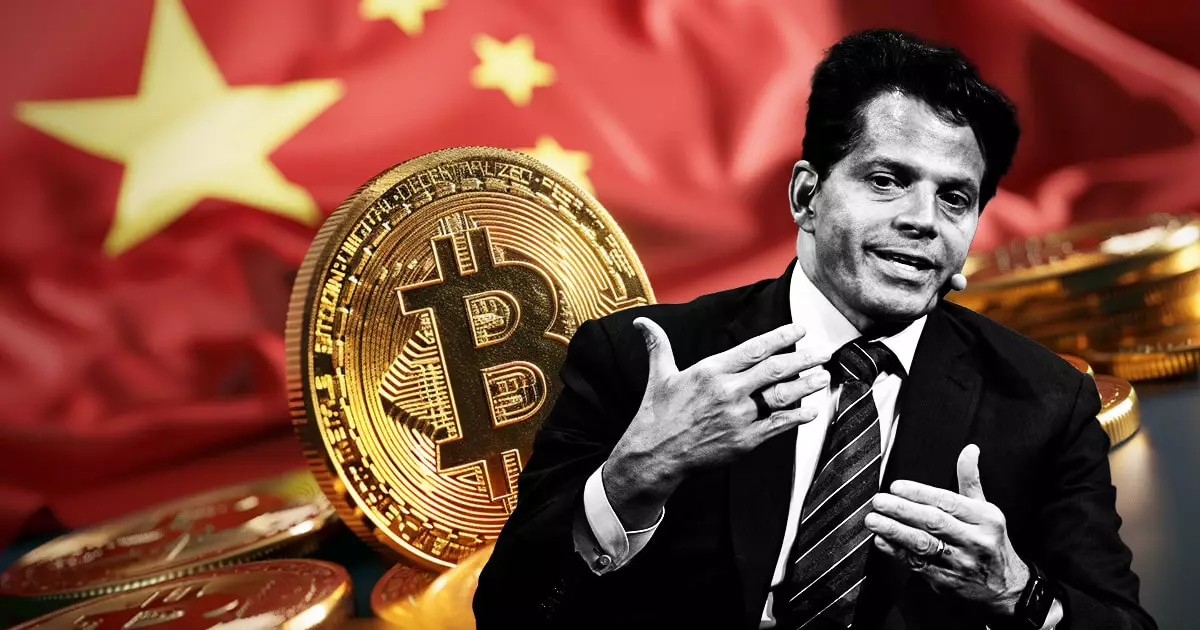The world of cryptocurrency has experienced transformative shifts over the past few years, with Bitcoin solidifying its position at the forefront of financial debates among governments and institutions alike. Recent assertions made by noted entrepreneur Anthony Scaramucci at the Bitcoin MENA 2024 conference highlight the emerging consensus around Bitcoin as a significant reserve asset. This article delves into the evolving landscape of Bitcoin adoption, focusing on the global implications of integrating Bitcoin into national reserves amidst geopolitical changes.
China, once a dominant player in Bitcoin mining, has shown signs of reconsidering its stance on cryptocurrency resources. Scaramucci’s remarks hint that by the next year, China could possibly restore its legal Bitcoin mining operations and integrate Bitcoin into its official reserves. This potential pivot reflects both the shifting dynamics of global Bitcoin policies and the pressing need for countries to reassess their economic strategies in light of increasing digital asset acceptance worldwide. If realized, such moves could position China as a leader in digital finance, potentially reshaping the competitive landscape with respect to Bitcoin’s strategic value for national policies.
The United States has started to illustrate a more accommodating approach toward Bitcoin, which could embolden other nations to follow suit. The U.S. government has engaged in discussions around formalizing Bitcoin reserves—a significant signal that the crypto asset can be perceived as a legitimate element within national portfolios. Prominent political figures, including former President Donald Trump and Senator Cynthia Lummis, advocate for maintaining and expanding Bitcoin holdings as strategic measures. This aligns with broader legislative initiatives across several states, indicating a transition from viewing Bitcoin purely as a speculative asset to recognizing its potential as a cornerstone of national reserve strategies.
Countries across various continents are now scrutinizing Bitcoin’s utility as a reserve asset. In Russia, lawmakers have initiated talks on establishing a national Bitcoin reserve, motivated largely by economic sanctions and the desire for stability amidst geopolitical challenges. Brazil’s legislative attempts to allocate significant portions of its reserves to Bitcoin also underscore a wider trend of utilizing digital currencies as financial buffers against economic turmoil.
Elsewhere, discussions in the U.S. about how to integrate Bitcoin into state treasuries appear increasingly serious. State governments, including that of Pennsylvania, are putting forth proposals that call for embracing Bitcoin as a mainstream reserve asset, indicating that the conversation is shifting from theoretical exploration to practical application.
While the potential benefits of Bitcoin as a reserve asset are evident, experts are quick to express caution. Detractors frequently point to Bitcoin’s notorious volatility and the risks inherent in tying national financial strategies to an asset with such fluctuations. Concerns regarding the equitable distribution of wealth, where significant resources may disproportionately benefit those already invested in Bitcoin, persist. Nonetheless, the steady influx of institutional interest in Bitcoin, evidenced by asset management firms showing increasing support for strategic reserve initiatives, demonstrates a growing belief in the cryptocurrency’s long-term viability.
Scaramucci’s assertion regarding China’s possible return to Bitcoin mining and reserve integration signals a potential realignment in global digital finance. The convergence of U.S. positions on Bitcoin and various nations’ exploration of incorporating the asset into government portfolios illustrate a broader acceptance of its strategic role. As countries evaluate Bitcoin’s potential as a reserve asset, the conversations are evolving beyond mere speculation, aligning with a vision of future financial systems where Bitcoin acts as a stabilizing and influential force in national and global economies.
The coming months will undoubtedly be pivotal, especially in light of impending significant events like the 2024 U.S. presidential election and the anticipated Bitcoin halving. How governments choose to navigate these transitions will greatly determine the future landscape of Bitcoin as an essential component of national financial strategies and its broader acceptance within international markets.

